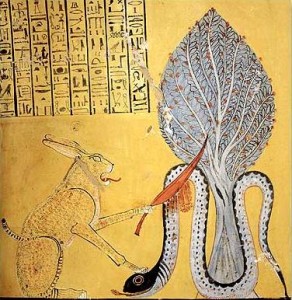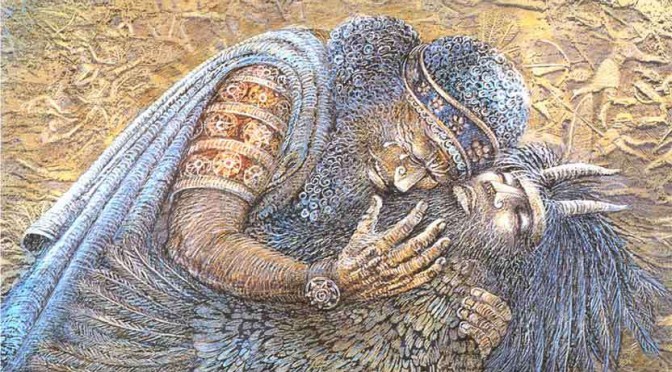A while ago someone asked if there were any things in mythology which were completely untamed, could not be captured, could not be stopped, just wild and perpetually free. They could think of one themselves, but couldn’t think of many others. And, with some careful consideration, I realized the question appeared simple but was deceptively complex, ultimately answering, “no, not really.”
That’s not to say there aren’t beings of chaos in mythology, there most certainly are. But often you find that those beings of chaos are overcome or controlled by others around them. Loki is bound beneath Jormungandr until Ragnarok. Eris is a minor deity in the Greek pantheon, repeatedly stopped or overcome by those that encounter her, left to make grand impact only by tricking others into doing it for her. And Apep, god of chaos in the Egyptian mythology, was the mortal enemy of Ra – who made it a point to attack him every night upon his return to the underworld.

While mythology often talks about what humanity is afraid of, it doesn’t often leave these forces completely unchecked. In a somewhat optimistic fashion, the mythology of the things that we’re afraid of also tells of how we overcome these things. It’s the kind of thinking that has people make offerings to volcano gods or begin ceremonial dances to call for rain. We like to believe that we can survive whatever nature brings at us and that those with just a bit more power than we have can defeat those forces altogether.
And this optimism comes not just from our desire to survive, but also to overcome the forces that keep us down – both external forces and, often, internal… Continue reading The Enkidu Effect


